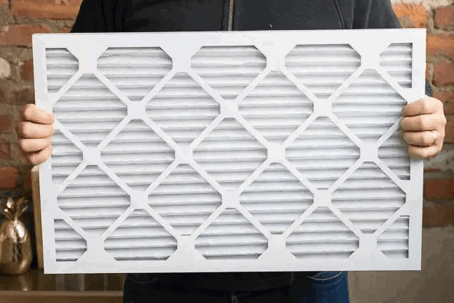How To Save Your AC & Keep It Running Efficiently
Between maintenance sessions, one of the easiest, most impactful things you can do to save your unit from expensive damage and make sure your air conditioner remains efficient is to simply change your filters.
What Does An AC Filter Do?
It’s not uncommon for homeowners, even those who change their filters with predictable regularity, to somewhat misunderstand an HVAC filter’s function. When comparing filters, we’re often swayed by MERV ratings, choosing the filters designed to protect our homes and families from airborne contaminants such as dust, pollen, viruses, and more.
However, there’s a second critical function that AC filters serve: protect your HVAC system’s sensitive coils from dust and debris.
Does a Filter Prevent AC Repairs?
Yes, the air filter traps what would otherwise end up collecting on your AC’s indoor coils. Maintaining clean coils greatly reduces wear and tear and prevents early system failure.
When dirt builds up on your AC’s evaporator coils, the heat exchange becomes impaired, restricting heat absorption and reducing your AC’s efficiency. You might have dirt buildup on your AC if you’re noticing that your AC is running longer, more frequently, or constantly shutting off and on in order to keep your home at the set temperature.
While you might instantly notice reduced comfort and a spike in energy consumption, there are even more serious issues lurking beneath the surface. Left unchecked, dirt on your evaporator coils can cause refrigerant temperatures to drop too low, leading to ice forming on your AC. Ice on the coils can quickly cause additional damage to the AC’s compressor, which can be quite costly to replace.
Why Do I Need To Replace My AC Filter So Often?
If the filter is dirty, it’s doing its job and trapping the dust that would otherwise collect on the coils, right?
Filters are designed to trap debris while still allowing air to circulate freely. That’s important because your AC requires ample air circulation in order to function properly and keep from overheating.
A dirty filter significantly reduces airflow, which can result in more than just uneven cooling around the house. Lowered airflow makes it more difficult for your entire unit to work efficiently, leading to early wear and tear related to overheating, short-cycling, and damage to the evaporator coils.
We get it, remembering to change your AC filter is a bit like flossing: you fully intend on doing it regularly, but before you know it you’ve skipped a few sessions and a professional with a clipboard is handing you bad news.
If you’re following the recommended bi-yearly checkup schedule, the damage is often thankfully minimal. After all, maintenance visits, whether to your dentist or from your preferred HVAC company, are designed to prevent minor problems from ballooning into major crises.
But if your regular checkups have continually moved down on your list of priorities, a future crisis might already have been set into motion. Unfortunately, since the early signs of AC neglect are virtually undetectable, homeowners are usually unaware of problems until they’re seeing the signs of potentially-irreversible damage.
Remember that a reasonably priced standard 1-inch air filter provides plenty of protection for your AC unit, but should be changed every 1-3 months – with more frequent changes during the summer.
Learn more about our comprehensive maintenance plans now.

